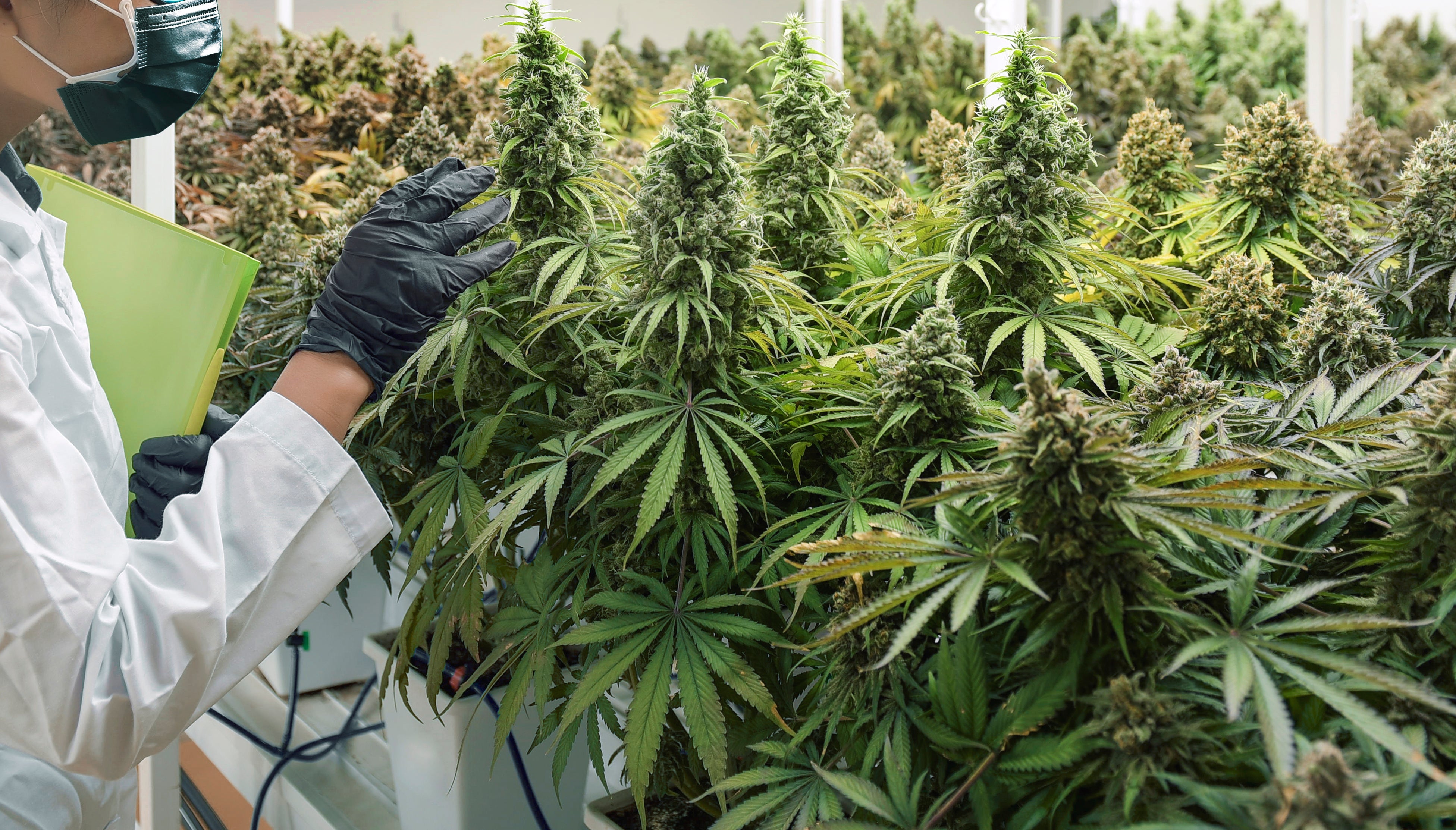Marijuana users have higher levels of toxic metals in blood and urine, study finds
The team of researchers at Columbia University analysed data from blood and urine samples collected between 2005 and 2018 - this is what they found

People who use marijuana were found to have higher levels of lead and cadmium in their blood and urine, in comparison to those who do not use weed, according to a new study.
The team of researchers at Columbia University analysed data from blood and urine samples collected between 2005 and 2018 as part of the National Health and Nutrition Examination Survey, a program conducted by the National Center for Health Statistics.
They looked at samples of 7,254 people who said they had used marijuana in the last 30 days.
Participants were examined for levels of heavy metals and 358 people were found to have 27 per cent higher blood lead levels than those who said they didn’t use either marijuana or tobacco.
There were also 22 per cent higher levels of cadmium in those marijuana users according to the research, which was published Wednesday in the journal Environmental Health Perspectives. Researchers also found that the urine samples showed similar results.
High levels of cadmium can cause stomach irritation, abdominal cramps, nausea, vomiting and diarrhoea, according to Better Health.
Researchers found that although tobacco is the main source of cadmium exposure in the general population, the study showed similar exposure levels among cannabis users.
“For both cadmium and lead, these metals are likely to stay in the body for years, long after exposure ends,” Tiffany Sanchez, an author of the study and an assistant professor of environmental health sciences at Columbia’s Mailman School of Public Health said to NBC News.
As cannabis plants can absorb heavy metals from soil - the new findings demonstrate that heavy metals in cannabis plants can also wind up in the human body.
“Previous studies have measured metals in marijuana plants, products, or marijuana smoke,” study authors have said.
Lead exposure can be particularly harmful to children and pregnant women. In adults, chronic exposure to lead increases the risk of high blood pressure, heart problems and kidney damage.
“Our study wasn’t able to tease apart whether or not self-reported cannabis users were using medical or recreational cannabis, so we can’t say definitively if medical cannabis users specifically had higher metal levels,” Sanchez said as reported by CNN. “This is something that should be evaluated in future studies.”
Heavy metals bind to parts of your cells that prevent your organs from doing their job, according to the Cleveland Clinic and symptoms of heavy metal poisoning can be life-threatening and can cause irreversible damage.
“Immunocompromised people, such as those going through chemotherapy, may be at greater risk from metal exposure or from other common cannabis contaminants like molds. However, this is very much an understudied area,” Sanchez added.
On Wednesday, the Department of Health and Human Services recommended that the Drug Enforcement Administration ease restrictions on marijuana by moving it from Schedule I drug to Schedule III.
HHS Secretary Xavier Becerra said on X, the platform formerly known as Twitter, that the agency has responded to President Joe Biden’s request “to provide a scheduling recommendation for marijuana to the DEA.”
“We’ve worked to ensure that a scientific evaluation be completed and shared expeditiously,” he added.
Senate Majority Leader Chuck Schumer said in a statement that HHS had recommended that marijuana be moved from a Schedule I to a Schedule III controlled substance.
“HHS has done the right thing,” Schumer said. “DEA should now follow through on this important step to greatly reduce the harm caused by draconian marijuana laws.”
Rescheduling the drug would reduce or potentially eliminate criminal penalties for possession.
Marijuana is currently classified as a Schedule I drug, alongside heroin and LSD.
According to the DEA, Schedule I drugs "have no currently accepted medical use in the United States, a lack of accepted safety for use under medical supervision, and a high potential for abuse."
Additional reporting from agencies
Join our commenting forum
Join thought-provoking conversations, follow other Independent readers and see their replies
Comments

Bookmark popover
Removed from bookmarks